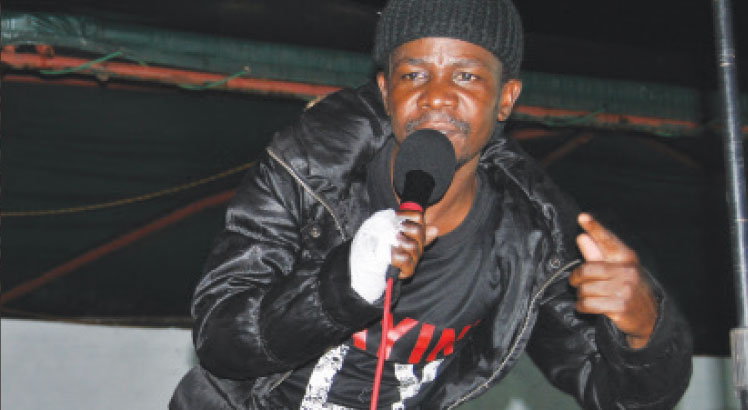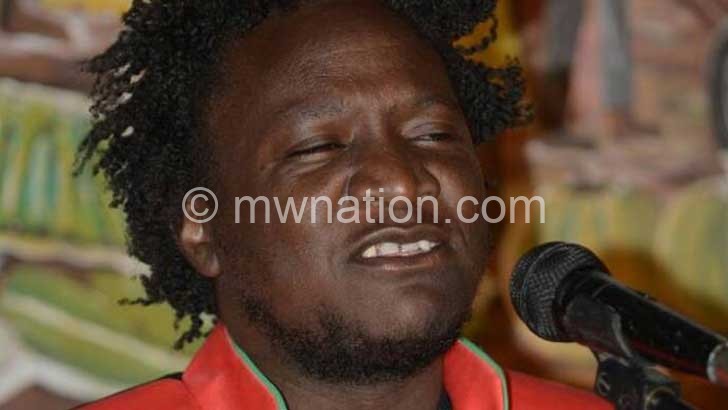Why Death should have spared Chibade
It is almost a month since the local music industry lost one of its brilliant creative minds in Thomas Chibade.
Throughout his career, Chibade can be looked at as a moral compass, who displayed rare insight, counsel and intelligence on a myriad of themes that he tackled in his compositions. His reflections were almost faultless. When he sang, listeners tagged along on his line of thought.

Of all the themes he touched on, Chibade profoundly focused on the theme of death. The singer and songwriter tackled death from different angles in a way that dragged people to accept the harsh realities that death brings.
One may be tempted to think the artist simplified death as he expounded his thoughts in Freedom Fighter. In the composition, he implored on people not to mourn for him upon his death. “Ndikadzangofa achibale musadzalire, ngati mukufuna mulire ndili moyo.”
It is rare to imagine someone making such a declaration. Crying upon one’s death is a societal norm that is viewed to bring closure to those grieving for their loved ones. But Chibade urged all to forgo this norm as he saw his demise as a victory for death which needed to be congratulated on.
The send-off he was given may just be a reflection of what he pleaded for in Freedom Fighter. Whether the multitudes that came to pay their last respects to him were really living up to his wish or just crying for one more melody from him, we will never know.
Chibade took another journey into the death thicket in his composition Bulu wanding’amba nthiti. In this song, he sings about the unexpected manner death comes and the subsequent suffering it causes to those left behind.
He sings: “Koma simunanene inu, kuti mudzachoka chonchi, tiwana tikungolira kuno. Kodi bambo nanga ali kuti? Koma simunanene ayi, kuti mudzachoka chonchi, Imfa ikati idzioneka,tikanagwada kuyipempha isatelo…”
When you look at the composition from the first persona, one is prompted to draw parallels with the manner he died. But that is just how he understood death and the pangs that death leaves on every family it touches are the same.
His death was marred by an unfortunate incident which happened as his family members and the community leaders from M’gona in Lilongwe, where he spent the latter part of his life, could not agree where Chibade should be buried.
The family representatives wanted the body to be rested in his home village in Zomba District, but his new found family in M’gona would have none of it. After a prolonged stand-off, the authorities from Lilongwe finally got their wish and Chibade was buried in Lilongwe.
That development was almost a replay of his message in Bwelera kunyumba. In this composition, Chibade aptly captures the fortunes of a man who left his home village to try and make a living in town.
Unfortunately, things did not turn out as expected and the person reaches a point where comparatively he could have been better off back home than clinging on to his new dwellings. The problem now comes as he lacks the courage to go back home, whether out of pride or having just resigned to his fate.
“Usazunze moyo, bwelera kunyumba. Abale ako ndife,tidzakulandira. Umphawi sumapha bwelera kunyumba. Tiwopa ukadzamwalira, moyendamo udzatizunza. Maliro kudula, ma transport. Tsono ukali moyo, bwelera kunyumba,” the song goes in part.
After a promising start to his career with his debut album Zatukusira, it was clear Chibade’s career took a huge slump towards the latter stages of his life. With less bookings and no chart bursting records like was the case before, life was never going to be easy for the one-time music darling.
In hindsight, one may be tempted to think that would his death have been a little dignified if he had taken heed of the reason in the song Bwelera Kunyumba and retraced his way back to Likaluma Village in traditional authority Chikowi, Zomba?
Whether it was out of fear of the inevitable end that death provides or just an acceptance that there is no other route to avoid it, Chibade displayed a deeper understanding of what death brings on people. Maybe death should have spared him on that pretext.





